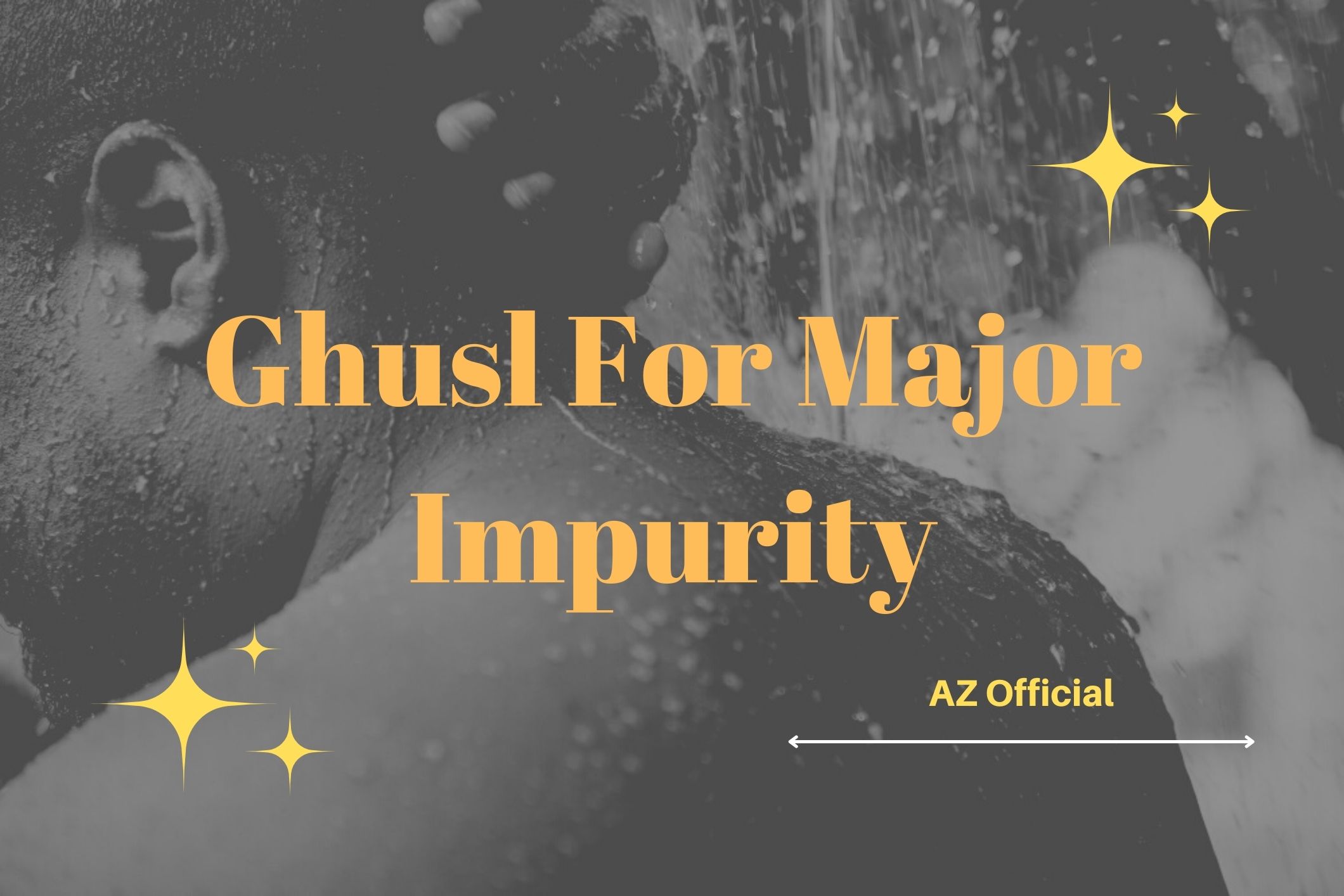Ghusl For Major Impurity

Ghusl For Major Impurity Which Means for the ritual purification of the whole body
that every adult Muslim must do before performing certain rituals and prayers.
This must be done after ejaculating or when the menstrual cycle is over.
Ghusl is often translated as “full ablution,” which is different from wudu,
which is a “partial ablution” that Muslims do after things like urinating,
defecating, flatulence, and deep sleep, and light bleeding.
Ghusl is required for seven different reasons,
and the ghusl for each of these reasons has a different name:
- Ghusal Janabat is ghusl that is done after ejaculation or sexual activity.
- Ghusal Hayd is getting her period.
- Ghusl Nifas is going after lochia (vaginal discharge after giving birth,
which can occur for up to 6 weeks after birth) - Ghusl Mayyit is when ghusl is done on a Muslim who has died.
Ghusl comes in two forms:
Acceptable form: If a person only does ghusl in this way,
his ghusl is valid and he is cleansed of major impurity.
But if a person does this kind of ghusl correctly, his ghusl is not valid.
Complete and preferred form: it is mustahabb to do, but it is not obligatory.
For the obligatory and acceptable form, are as follows
Ghusl For Major Impurity
- Make the intention to purify oneself from impurity:
janabah (impurity following sexual discharge),
menses, or nifas (postpartum bleeding). - Wash the whole body with water once:
making sure the water gets to the hair roots
and hard-to-reach places like the armpits and backs of the knees,
as well as rinsing the mouth and nose, according to the correct scholarly opinion.
al-Sharh al-Mumti’ (1/423)
- The fact that this ghusl is valid is shown by what Allah says:
“If you are in a state of Janaaba (that is, after a sexual discharge),
purify yourselves (bathe your whole body)” [al-Ma’idah 5:6].
Allah didn’t say anything else about it. If a person washes their whole body once,
it is true that they have purified themselves.
As for the full form, it looks like this:
- Set the intention in your heart to clean yourself from major impurities:
janaabah (impurity after sexual discharge), menstruation,
or nifaas (postpartum bleeding). Ghusl For Major Impurity - Then say “Bismillah” and wash your hands three times.
- Then wash any dirt from your private parts.
- Do wudoo’ as if you were praying, a complete wudoo’.
- Then Pour water over the head three times and rub the hair so
that the water gets to the roots of the hair.
Then wash the body, making sure the water gets to every part.
Start with the right side of the body, then the left,
and rub it with your hands so the water gets to every part.
Allah Almighty Says that:
اِنَّ اللّٰهَ يُحِبُّ التَّوَّابِيۡنَ وَيُحِبُّ الۡمُتَطَهِّرِيۡنَ
InnALLAHa Yu’hibbut-Tawwabeena Wa Yu’hibbul Muta-tahhareena
“Allah loves the repentant and the pure.”
Proof that this Mustahabb form of ghusl is correct:
“It is narrated via Aisha that on a day of fasting the Prophet would rise in
the morning and then would conduct ghusl (bathing).”
Al-Bukhaari (248) and Muslim (316).
He would call for something that looked like a milking vessel and put water in his hand.
He started with the right side of his head, then the left,
and then he took water in both hands and poured it all over his head.
